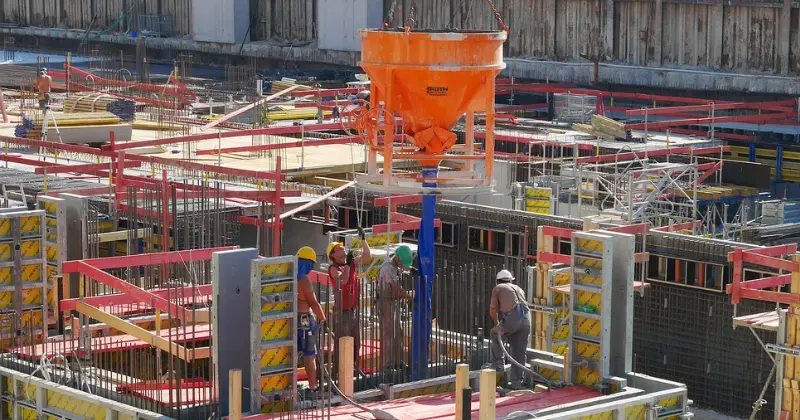10 mins read
What is a Document Controller in Construction? Exploring the Key Skills & Responsibilities of this Valuable Role

Complex construction projects often involve a high volume of diverse and continually changing documents, and each one must be accurate, timely, and compliant. This makes the construction document controller much more than an administrator, as they use their exceptional communication and organizational skills to provide key stakeholders with the information they need and ensure project success.
In this blog post, we take a closer look at the role of the document controller in construction to better understand the importance of the job and the skills required to excel. We also examine how this role has been shaped by software tools as a new generation of controllers emerges.
What is a Document Controller in Construction?
The construction document controller oversees all project documentation, including drawings, contracts, construction specifications, and plans, and ensures they are properly filed and updated to keep projects running smoothly, minimize errors, and prevent revision conflicts.
Unlike other industries where all information is maintained in a digital format, construction document control jobs might also involve paper drawings and blueprints that require special attention and handling to maintain revision control. The document controller typically organizes all electronic files in a centralized platform that makes it easier to share information with contractors, engineers, architects, and other key construction roles.
What Does a Construction Document Controller Do?

Document controllers have a wide range of responsibilities that help to ensure all documents meet company requirements and external standards. With complex projects sometimes requiring thousands of documents and countless changes, the performance of the document controller directly contributes to project success. Let’s take a look at some of their duties.
Generate key project documentation
The document controller is not just a passive recipient of drawings, specs, or contract documents generated by other stakeholders. To maximize their value, they also need to create key project documents, including document registers and logs that help to keep files organized, and document change orders used to track review and approval cycles when updates are needed. To do so, they are highly skilled and experienced in effective construction document management techniques and methods.
Update documentation during the project
Construction document management software has taken a lot of legwork and manual signature loops out of the change management process. However, a central point of contact is still needed to facilitate changes, update documentation, and distribute new information to stakeholders.
The construction document controller completes these critical tasks while conducting regular reviews and updates to ensure all documentation reflects the latest project conditions, and no obsolete drawings or files remain in circulation.
Follow document control procedures
Each company has its own processes and procedures in place that explain how each document type is managed, approved, and retained. The construction document controller must take an active role in creating and updating these procedures and ensuring that other team members are trained to handle and share documents correctly. Following these established procedures also helps to keep documents safe from cybersecurity threats and data loss.
Ensure document compliance
Document controllers should fully understand quality standards like ISO 9001, as well as any industry-specific regulations, laws, and building codes that apply to the documents they manage. This knowledge becomes essential when they perform regular quality checks and audits to ensure documents are properly formatted and comply with both internal and external standards.
Share documents at key stages to facilitate project execution
A document controller uses their project knowledge, system understanding, and database access to help manage the flow of information and prevent delays during critical stages of the project. In addition to sending notifications when new or revised documents become available, they help to facilitate contract approvals, design reviews, final inspections, construction punch list completion, and other activities required to move projects from one phase to the next.
Taking an active role in the approval process allows the document controller to utilize their organizational and interpersonal skills to prevent project delays.
Key Construction Document Controller Skills

Modern software tools, complex projects, and dispersed project teams combine to make construction document control jobs highly dynamic and financially rewarding, but this multifaceted role is not for everyone. Some skills needed to perform well can be learned in school or on the job, while others are more innate.
Based on the scope and intensity of their daily activities, document controller skills shared by top performers usually include:
- Administration: This category includes the organizational skills needed to store and retrieve documents efficiently, and the system knowledge and computer experience necessary to protect files from unauthorized access and establish regular review and auditing processes. A willingness and motivation to learn can empower inexperienced workers to develop their administrative skills quickly.
- Written communication: Both written and verbal communication skills are essential as the document controller shares information with various teams and individuals, answers questions related to document content or changes and collects feedback on document quality and formatting issues.
- Attention to detail: The role of the construction document controller is one of the most detail-oriented in the industry, with thousands of drawings and documents to be managed, updated, and distributed efficiently with minimal errors or oversights. This makes exceptional attention to detail a mandatory job requirement.
- Working under pressure: Construction projects are known for their tight deadlines, complex designs, and high document counts, all of which can lead to pressure-filled situations for document controllers. Individuals with the right skill set can navigate these situations without compromising quality or accuracy.
- Teamwork: Smaller construction companies might only employ a single controller, or combine this role with other duties and responsibilities, but document control should never be viewed as a siloed activity. As the central hub of information, a document controller in construction must collaborate with team members throughout the organization to facilitate reviews, improve document content and quality, and accelerate change management processes.
These valuable personality traits and abilities are necessary to juggle everyday demands and develop into a professional and reliable resource for the entire company. Document control software and other new tools and technologies make it easier to manage revisions, updates, and document storage.
How to Become a Document Controller in Construction
While some construction document control jobs require a college degree, others allow individuals who have learned on the job to move from the field to the office as they seek out new ways to utilize their knowledge. Formal training as a certified construction document control specialist (CCDCS) is one of the best ways to gain both the knowledge and credentials employers are looking for in the digital age. Additional steps that are useful for aspiring document controllers include:
- Apprenticeships with a construction firm, IT, or document control departments
- Work experience in the construction industry in a technical capacity
- Formal training on building information (BIM) tools and practices
While developing their technical knowledge, future document controllers can also enhance their communication and interpersonal skills by networking with individuals in similar roles and participating in industry training sessions and events. This combination of preparation and industry knowledge can help control land stable positions with established construction companies.
What Can Professional Construction Document Management Software Do for Document Controllers?
Not long ago, the role of the document controller in construction and the industry itself looked very different. Hand-signed paper drawings filled vaults dedicated to document management, and blueprint copies were the method of choice for communicating information to the field. Construction document management software has dramatically altered the equation by providing centralized electronic storage capabilities, error-proof version control, and automated workflows.
RIB Project is an ideal platform for sharing project documentation and data, including 2D drawings and 3D models, to ensure seamless team collaboration. Data organization is optimized to provide all parties with access to the latest files and revisions, with new or updated documents automatically distributed to the correct stakeholders. An integrated BIM viewer simplifies collaboration for drawings and supporting files in the digital realm, while a versatile publication space improves visibility during critical phase transitions.
Conclusion
The role of the construction document controller has never been more important, with ambitious new projects increasing the volume and complexity of documents, and the digital transition bringing software and technology to the forefront. A unique combination of personality traits, technical knowledge, and construction experience helps document controllers navigate through these challenges, with advanced software tools to automate approval workflows and ensure document security.
RIB Project, our powerful construction documentation software, has been created with the needs of today’s document controller in mind, with automated workflows and approval processes to help keep up with the accelerated pace of construction, and a complete audit trail easily accessible to ensure compliance. Field and office teams access the same information at the same time to improve their communication and efficiency.
The power of digitized document management is elevating construction businesses around the world to the next plateau. Get your free demo today and find out what RIB Project can do for your business!

Most Recent
10 mins read
11 mins read
11 mins read
10 mins read
Blog Categories

Ebook











